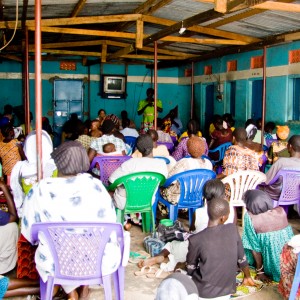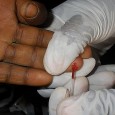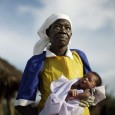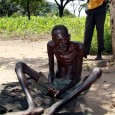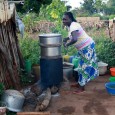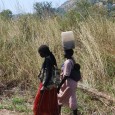Hope Ofiriha has made an application to Pilot Light Foundation to fund the women cooperatives in Magwi County. On April 12: Carol Levy, and Delphin Muhizi met the beneficiaries to assess their needs. PLF will fund a cooperative as a pilot project from the four proposals.
Sixty-five percent of South Sudanese live below the poverty line. Though able and ambitious enough to start their own businesses and lift themselves out of poverty, many simply don’t have any capital to start making money. Banks will not loan them the tiny amount needed to launch their small enterprise. But they can get the boost they need from Village Microloan Cooperative (VMC).
VMC gives aspiring entrepreneurs microloans, training, and support, through their participation in accountability groups called “Hardships.” These groups discuss business plan and decide together, and encourage each other to make timely loan and savings installments. Over time, many such hardships are spun-off throughout an economically –depressed area. Once the count of active borrowers reaches 100 a branch is officially established.
Together the entrepreneurs of a VMC branch generate financial returns on their savings and loans at a rate unprecedented in the financial industry. With the proceeds of this collective income, they invest in their community through social programs for needy children and families.
One branch can be firmly established in about two years and can generate enough income to sustain its community outreach programs in about four years. As a branch grows beyond its 100 – partner capacity, a new branch is begun, more people are able to lift their families out of poverty and the ripple of community transformation widens.
The Problem: It takes Money to make Money. It doesn’t take much – as little as $100 – to start a small, home –base enterprise that could turn around a poor south Sudanese family’s economic condition. But it might as well be $10 million to a struggling family living hand –to-mouth. They would need to borrow the little bit of money it would take to start a thriving business; and because of their low income, poor families could only afford very small payments on very small loans.
But commercial banks don’t deal in small amounts. That’s because it takes just as much effort to manage a small loan as a large one, yet small loans do not generate enough interest income to warrant the bother. Infact, banks lose money on them. Furthermore, poor families don’t usually have assets that can be secured as collateral. So banks would have no recourse should they default on the loan, making them too great of a lending risk.
With all these odds stacked against them the only option available to the poor is to borrow from money lenders, or “loan sharks,” at ridiculously high interest rates. Payments on such loans can be unrealistically high during the early start-up stage of budding small enterprise, dooming it from the start. Entrepreneurs can end up in crushing debt that increases their economic hardship. Instead, many ambitious south Sudanese squelch their dream to start an income-generating business and resign to live hand –to-mouth, stuck in oppressive poverty.
The solution: Microfinance: Very small “micro-loans “combined with a program of savings can help poor families develop greater financial security.
